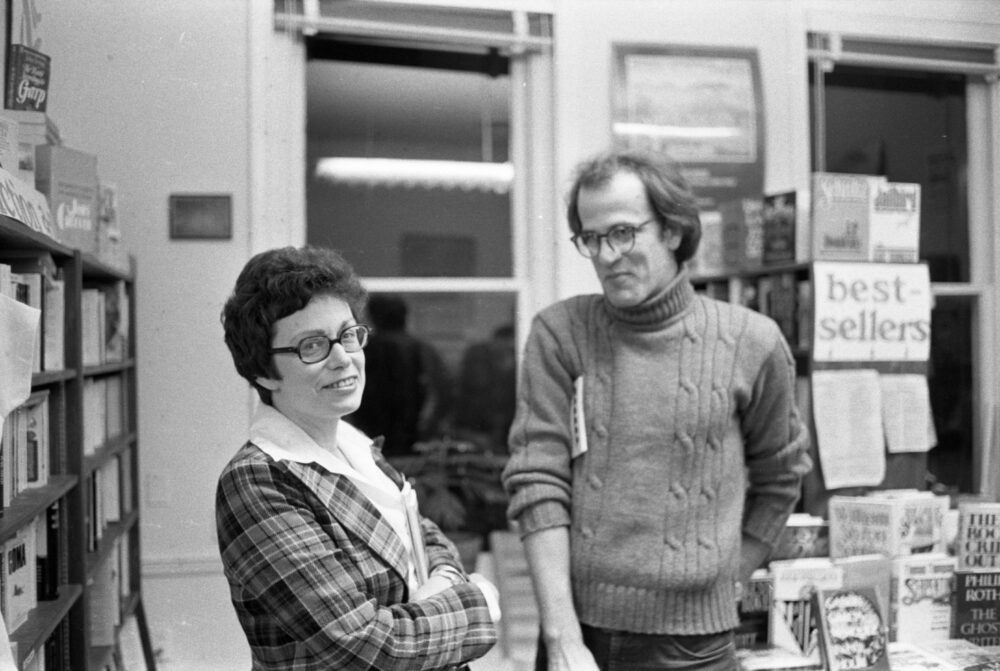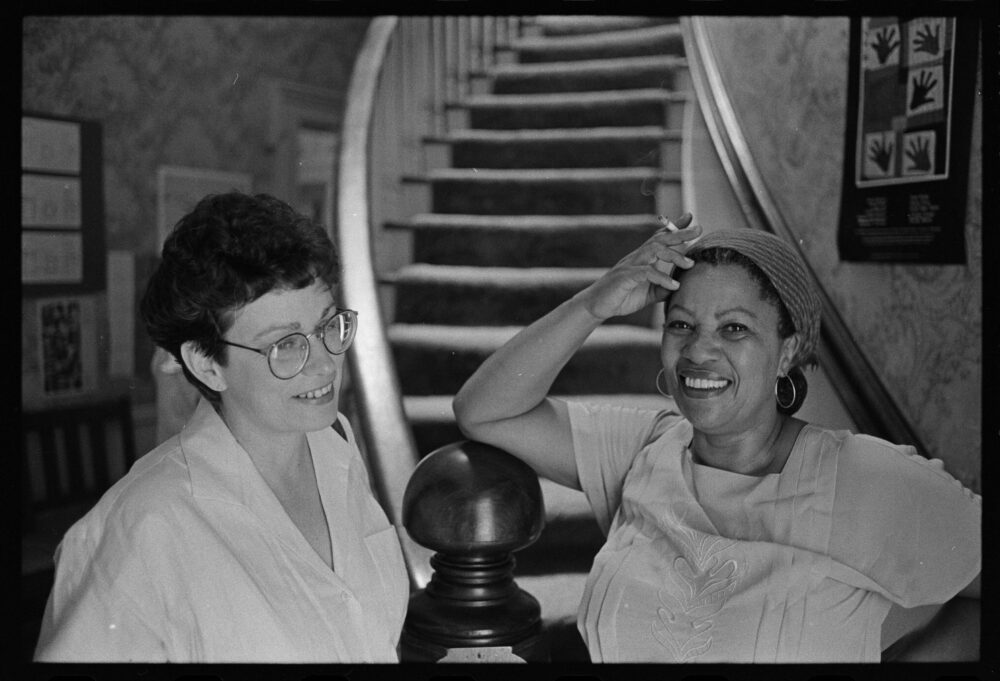The House That Ann Built
The House That Ann Built
For Ann Abadie (1940-2024)
Written by William Ferris
Ann Abadie came to Oxford in 1960 to begin her PhD in the University of Mississippi’s English Department. Her work focused on William Faulkner whose language inspired her to explore the South in its entirety. She and her colleagues Michael Harrington in religion and Robert Haws in history conceived the idea of the University’s Center for the Study of Southern Culture. They were encouraged by Chancellor Porter Fortune who completed his PhD in History at the University of North Carolina at Chapel Hill.
Together they launched the Center in 1977, and Ann began her long, productive career as its associate director. With support from the National Endowment for the Humanities, she enlisted Richard Brown, Academic Vice President of the Newberry Library, as a consultant to help build its programs. Ann’s core team included her administrative assistant Sara Dixon Pegues, three librarians—Brenda Eagles, Sue Hart, and Lisa Howorth—and our ‘receptionist’—the voice of the Center—Mary Hartwell Howorth. Ann also hired Charles Wilson, a young historian who worked closely with her for ten years on the Encyclopedia of Southern Culture, after which he updated the Encyclopedia as a twenty-four volume paperback edition, co-edited the Mississippi Encyclopedia, and directed the Center. Ann clearly had excellent judgment in selecting staff and faculty to oversee the Center and its many programs.
A gifted writer, Ann applied her love for language as an editor of the Center’s encyclopedias, anthologies, and proposals. She also forged an invaluable partnership with Richard Howorth and his beloved Square Books Bookstore, which opened its doors the same year the Center launched its programs.

I first met Ann in 1977, when she recruited me to direct the Center. In a nod to her love for southern literature, the Center’s first board of directors included the iconic southern authors Toni Morrison and Eudora Welty.
With the Center as her platform, Ann coordinated its initiatives on the American South in the fields of teaching, research and public programs. Under her leadership, the Center launched groundbreaking interdisciplinary BA and MA degrees in the field of Southern Studies that drew students from around the world.
The Center’s research initiatives included the Encyclopedia of Southern Culture (both its one-volume hardback and its 24-volume paperback editions), Dorothy Abbott’s Mississippi Writers(with volumes on fiction, non-fiction, poetry, and drama), Sue Hart, Brenda Eagles, and Lisa Howorth’s The Blues: A Bibliographical Guide, Lisa Howorth’s The South: A Treasury of Art and Literature, the Mississippi Encyclopedia, as well as one-volume conference proceedings on a broad range of topics.
Other publications included Living Blues magazine, the Southern Register, and the Center’s online journal Study the South. After her retirement, Ann organized symposia on William Eggleston and William Dunlap and edited their proceedings in two lavishly illustrated books— The Beautiful Mysterious: The Extraordinary Gaze of William Eggleston and American Landscapes: Meditations on Art and Literature in a Changing World. She oversaw all the publications sponsored by the Center and worked closely with several generations of staff at the University of North Carolina Press and the University Press of Mississippi.
Ann also secured major research collections for the University of Mississippi, including the Blues Archive, B.B. King’s personal record collection, the Jim O’Neal and Amy van Singel /Living Blues Collection, the Kenneth Goldstein Collection, the Seymour Lawrence Collection, the Seymour Lawrence Collection of American Art, and William Faulkner’s Rowan Oak Papers.
As part of the team that launched the Faulkner Conference in 1974, Ann understood the importance of symposia as a way to share the Center’s teaching and research programs on the American South with the public. She developed symposia topics that included William Faulkner, Eudora Welty, Richard Wright, Folk Music and Modern Sound, Civil Rights and the Law, Civil Rights and the Media, the Oxford Conference on the Book, the Southern Foodways Symposium, the Oxford Blues Festival, and yes, Elvis Presley.

In addition to symposia held on campus, Ann organized both national and international programs. Their topics included “Robert Penn Warren”, co-sponsored with the Gorky Institute of World Literature in Moscow and Yale University, and held at Yale’s Beinecke Rare Book & Manuscript Library; “Blacks in Europe” cosponsored with the Center for African and African American Research at Harvard University, the American Studies Department at Columbia University, and the Black Studies Department at the Sorbonne, and held in Paris; and four programs on “William Faulkner,” “Richard Wright,” “William Faulkner and Mikhail Sholokhov,” and “The American South and the Russian South”, cosponsored with and held at the Gorky Institute of World Literature in Moscow. Russian and Ukranian colleagues who hosted our visits in Moscow included Sergei Chakovsky, Tamara Denysova, Maya Koreneva, Peter Palievsky, Katrina Stetsenko, Alexander Vaschenko, and Yassen Zassoursky, all of whom also visited the Center and spoke at the Faulkner conference.
Ann also helped organize the Center’s “College on the Mississippi” aboard the Delta Queen. The week-long programs were organized by Peter Voll at Stanford University with alumni groups from Harvard, Yale, Princeton, Cal and Stanford, as well as Smithsonian Associates. Our most famous trip featured Mose Allison, Eli Evans, Shelby Foote, Alex Haley, and B.B. King, all of whom are featured in the documentary film Return to the River: A Television Voyage.
Ann wrote proposals that secured vital funding for all of the above projects from groups such as the Create Foundation, the Ford Foundation, the Mississippi Arts Commission, the Mississippi Humanities Council, the National Endowment for the Arts, the National Endowment for the Humanities, and the Phil Hardin Foundation. NEH provided critical funding with Challenge Grants for the renovation of Barnard Observatory and an endowment for acquisition of books on the American South. And the Ford Foundation funded a three-year program to strengthen Historic Black and Women’s institutions in the South. Visiting faculty who either taught for a semester or led two-day seminars included John Blassingame, Michel Fabre, Jacquelyn Dowd Hall, Blyden Jackson, Winthrop Jordan, Lawrence Levine, Leon Litwack, Jessie Poesch, and John Shelton Reed.
As Center programs attracted growing international recognition, Jay Taylor, Chief of Group Projects Division at the United States Information Agency (USIA), sent groups of international visitors to the Center for multi-day programs on the American South. The first group included the celebrated Haitian journalist Aubelin Jolicoeur. The Center later coordinated month-long tours of international groups who traveled to regional centers throughout the nation.
Ann nurtured people and their projects with respect and care. The productivity and quality of her work was unparalleled. She mentored generations of students and young professionals. With her soft-spoken voice and steel will, she laid the foundation for the beautiful work that Katie McKee and her fine team bring to life at the Center today. Ann’s unswerving commitment to the study of the American South will inspire and ground future generations of students, scholars, and teachers.
We are forever grateful for the untold ways Ann enriched our lives. We shared Ann with her magnificent family. She was mother of three talented children Lesley, Elaine, and John, and the beloved wife and partner of historian Dale Abadie. Her adopted family included all who worked at the University of Mississippi’s Center for the Study of Southern Culture, as well as hundreds of students, scholars, and visitors who visited the Center each year. She was a blessing to all who knew her. We loved her more than we can express.
William Ferris
University of North Carolina at Chapel Hill
